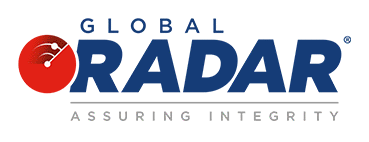As part of its ongoing battle to limit the proliferation of money laundering efforts and activities that contribute to the funding of terror operations at the respective regional and international levels, the United States and its global counterparts have long sought means to thwart the illicit financial activities of drug traffickers. Drug trafficking as a whole encompasses the cultivation, manufacturing, distribution and ultimate sales of illicit substances and remains a significant threat against the health of the populations to which they are funneled, as well as to the integrity of the international financial system. All told, the international drug trade is estimated to account for over 1% of the global GDP of $78 trillion (USD). With the opioid epidemic a major issue across America – as the abuse of both illicit drugs and prescription narcotics have been fueled by pandemic-related disruption of the U.S. healthcare system and are contributing to record economic costs – the U.S. government recently announced plans to impose targeted sanctions against individuals operating in the fentanyl trade.
While the illicit drug market has historically been dominated by plant-based drugs (marijuana, heroin, cocaine) and synthetic substances (methamphetamine), the 2010’s have seen a growing shift towards synthetic opioids like fentanyl and its analogs – i.e. substances similar in chemical structure to fentanyl, but are more difficult to detect with routine toxicology testing. The latter have been found to generally be cheaper and easier to produce and transfer with decreased risk of detection, allowing their effects to spread like wildfire both domestically and abroad. Over this time, the producers and traffickers of these illicit synthetic drugs too have shifted their practices in order to better exploit lawful global commercial distribution networks to sustain and enhance their illicit businesses.1 Given these factors, and the fact that the potency of these synthetics is generally higher (making them far more lethal than conventional street drugs), the Biden Administration has gone on record to call opioids a legitimate national security, public safety, and public health threat. In the midst of the opioid crisis, many U.S. lawmakers have called on Washington to increase their mitigation efforts against jurisdictions synonymous with the drug trade. This list includes several overseas countries such as India – which has emerged as a preeminent source for finished fentanyl powder and fentanyl precursor chemicals – China, and the United States’ next-door neighbor, Mexico
The United States appears to be making their initial move in this regard, this as a White House fact sheet released last week outlined plans for a crackdown on fentanyl supply chains that became effective immediately. The measures detailed will look to upgrade current sanctions efforts and other stringent measures against key figures in the drug trade in order to better disrupt the illicit financial flows of traffickers, as well as limiting their access to the American financial system. As part of these efforts, the U.S. is also seeking an expansion of its international partnerships for purposes of continuing the global anti-money laundering crusade. The Biden Administration is reportedly building a global coalition utilizing partners from the United Nations’ Commission on Narcotic Drugs to better prevent the manufacturing of illicit drugs, while also detecting and mitigating emerging threats of this variety and subsequently disrupting trafficking and illicit financial efforts on the global scale. The U.S. will also seek to improve the coordination and efficiency of its information-sharing processes between intelligence agencies and domestic law enforcement bodies to improve their ability to track illegal activity on the ground and boost seizure rates for both cash and illicit drugs, ultimately contributing to improved prosecution rates domestically.
As mentioned above, the new efforts will focus heavily on increasing financial sanctions for key players in this trade who have been found to be using the U.S. financial system to fund their destabilizing efforts and/or to launder their drug proceeds. The U.S. officially commenced their offensive last week, as last Friday the U.S. Treasury Department imposed sanctions on two entities and five individuals based in China and Guatemala, accusing them supplying precursor chemicals to drug cartels in Mexico for the production of illicit fentanyl intended for the United States.3 . As representatives from the Mexican government had been meeting with the Biden cabinet over the last several weeks in order to come to a resolution on increasing oversight against fentanyl trafficking on behalf of Mexican drug cartels and their supply chains, charges were also levied last Friday by the U.S. Department of Justice against over two dozen members of Mexico’s notorious Sinaloa cartel, a group which Attorney General Merrick Garland called undoubtedly the “the largest, most violent, and most prolific fentanyl trafficking operation in the world.”2 The indictment also includes the four sons of imprisoned cartel leader “El Chapo.” In their negotiations with the Mexican government, the U.S. is also reportedly setting their sights on limiting illicit arms trafficking in the region. While these early actions have been commendable, the United States government and its international allies must remain diligent in order to bring their sanctions imposition efforts to optimal levels for actual deterrence of illicit narcotic production and sales to come to fruition.
The White House Fact Sheet on its illicit fentanyl chain crackdown can be found in its entirety here.
Citations
- “Fact Sheet: Biden-Harris Administration Announces Strengthened Approach to Crack down on Illicit Fentanyl Supply Chains.” The White House, The United States Government, 11 Apr. 2023.
- Hauck, Grace. “US Charges Sons of El Chapo, Sinaloa Cartel Members in Fentanyl Trafficking Crackdown.” USA Today, Gannett Satellite Information Network, 14 Apr. 2023.
- Psaledakis, Daphne. “U.S. Imposes Sanctions on Chinese Companies in Action over Fentanyl.” Reuters, Thomson Reuters, 14 Apr. 2023.

